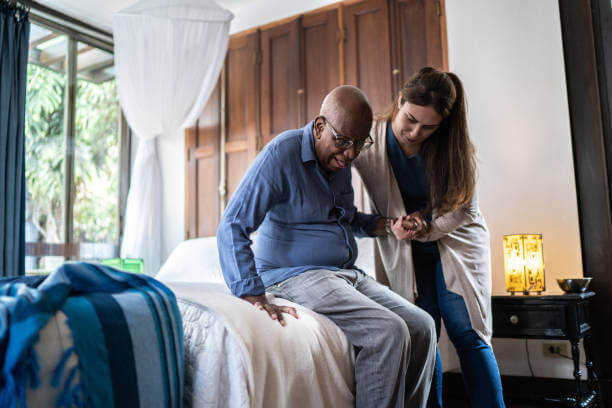Medicaid- and state-funded programs that pay for home-based services for elderly individuals who might otherwise require nursing home care have been, until recently, available in many states. However, many home and community care programs find themselves on the chopping block due to state budget cuts.
New York City’s Mayor Michael Bloomberg said he will have to close 105 of the city’s 256 senior centers if the state does not restore $27 million in funding. The senior centers are integral to keeping low income seniors living at home by providing hot meals, exercise classes to assist in healthy aging, and the opportunity to socialize.
The Illinois Department of Aging’s Community Care program, which pays for home health care workers for the elderly, has run out of money, according to WBEZ Chicago public radio report. Ironically, unless funding is restored, the state could find itself paying more for senior care if those elderly wind up in nursing homes.
Senior home care costs $15 – $25 per hour for hourly care and $150 – $350 per day for 24-hour live-in care. That compares to $180 – $400 per day for nursing home care. And that’s if you can find an available bed in a quality nursing home. A recent article by Philip Moeller in U.S. News and World Report delved into the shortage of space in nursing homes nationwide.
It’s no secret that seniors prefer to age in place, in their own home and community. Studies have shown that home- and community-based care can lead to better health outcomes. As the population ages, there will be a greater need for home- and community-based care. The U.S. Census Bureau projects that roughly 9.5 million people in the U.S. will turn 85 over the next 10 years. The question remains: How will an aging population on a limited income pay for the much-needed in home care?
Lawmakers hold the key to finding and diverting money in their budgets to senior services. In Georgia, Patricia Lyons, who runs Senior Citizens Inc. and supplies Meals on Wheels to many Savannah seniors was prepared for the worst. She was looking at the elimination of much of the program when federal funding was scheduled to run out and the governor didn’t replace the money with state funds. She was worried that the most vulnerable of the city’s elderly would lose their lifeline. Her drivers not only delivered food, but checked to make sure the seniors were healthy.
Legislators agreed that the service was too important to cut and found funding by cutting other contracts in their budget. The Meals on Wheels program in Georgia was saved.
If you know Caregiverlist at all, you know that we are huge advocates of senior home care — we support caregivers, agencies and seniors alike. If you care about quality home care and want to see continued funding, we ask you contact your state legislature or your state’s Department on Aging and let them know how important it is to keep funding these programs.
Main Menu
Main Menu
Main Menu







